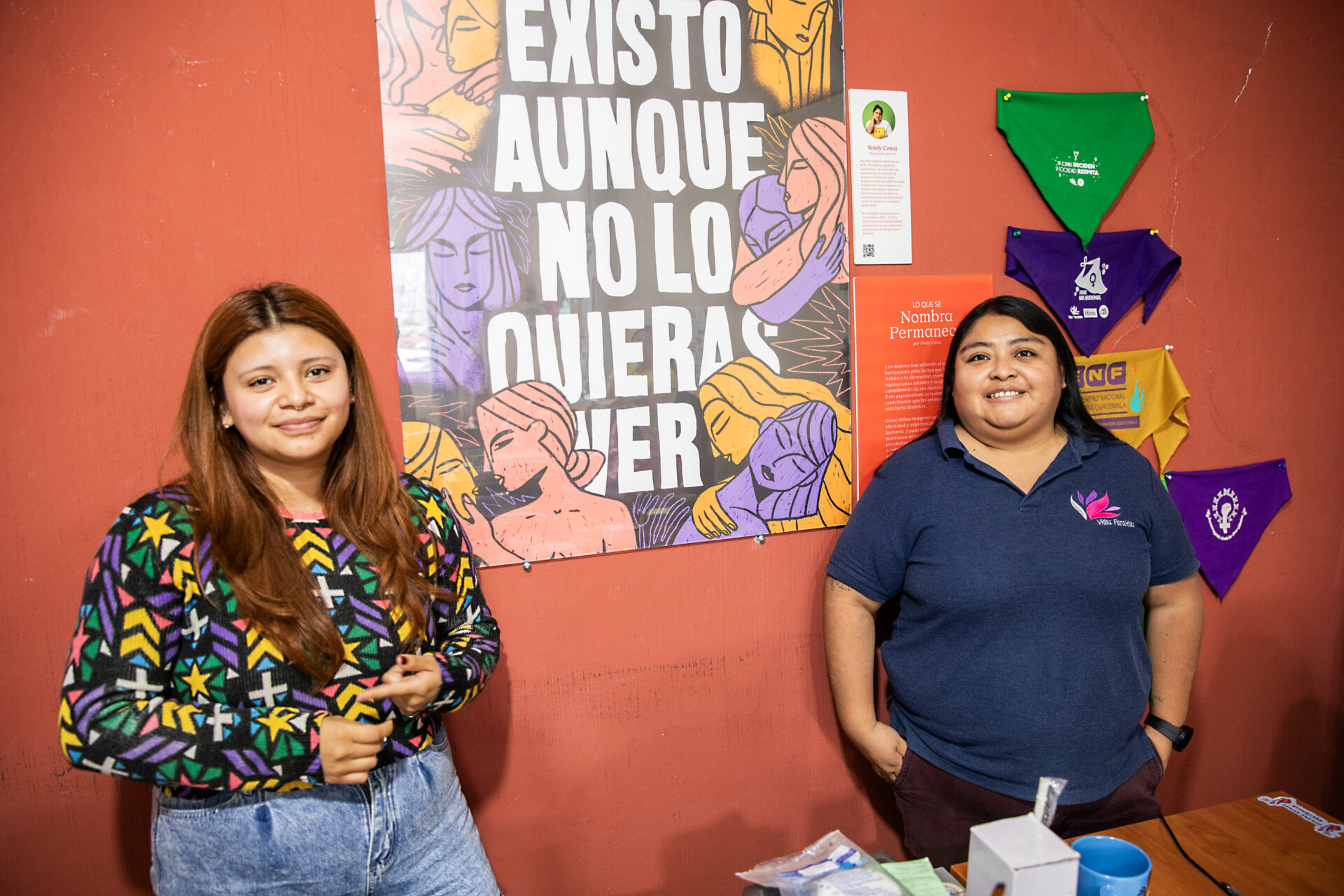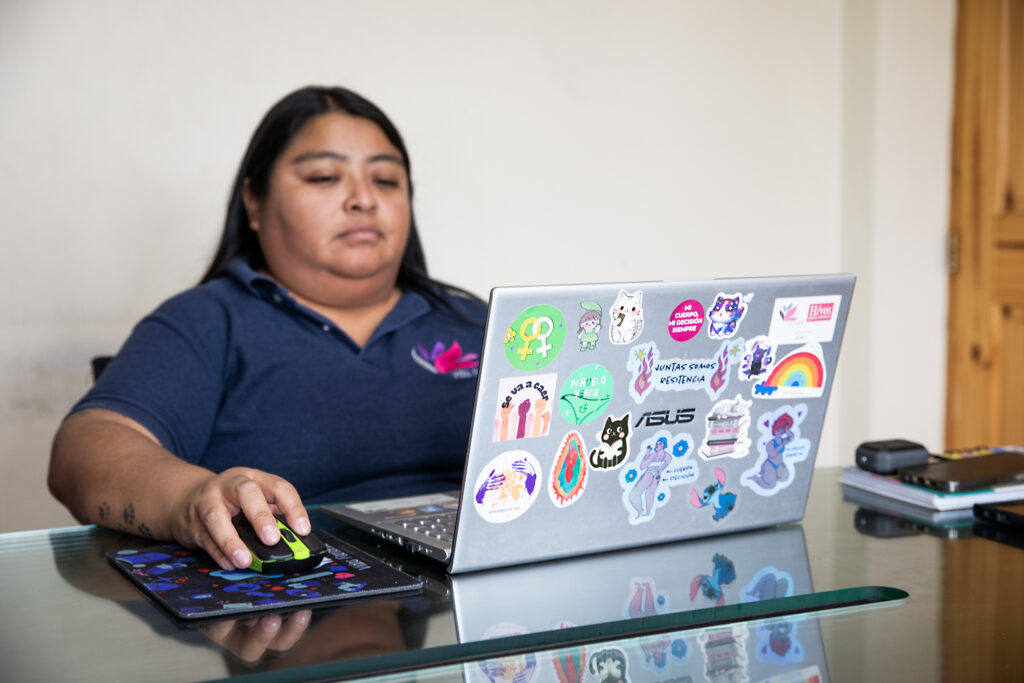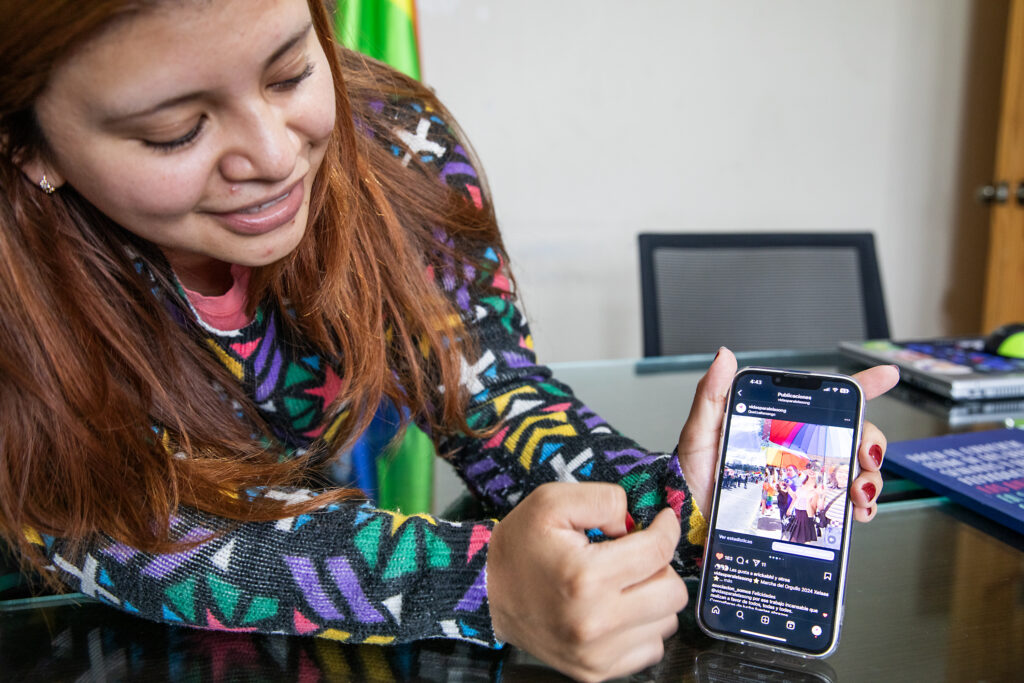Vidas Paralelas Challenges Hatred Against LGBTQI+ People in Guatemala

Being LGBTQI+ in Guatemala is a matter of life and death. Murder, harassment and police persecution are everyday realities, and authorities often refuse even to register these crimes. Amid this violent climate, the organisation Vidas Paralelas works in Quetzaltenango to create safe spaces, provide legal support to women, and ensure that cases do not “disappear”.
Guatemala is one of the most dangerous countries in Latin America for LGBTQI+ people. The justice system fails, police are sometimes perpetrators themselves, and hate crimes are often dismissed as “accidents”. It is in this reality that Vidas Paralelas operates – an organisation that, with courage and creativity, fights for LGBTQI+ rights in the city of Quetzaltenango, also known as Xela.
“Several years ago, we saw the police pursuing trans people here in Xela. They would arrest them in the city centre, load them onto the back of a pick-up truck and drive them around so everyone could see. It was public humiliation,” says Andrea Díaz, founder of Vidas Paralelas.
She continues:
“When an LGBTQI+ person is murdered, it is rarely recorded as a hate crime. I remember a trans person who was found dead with stab wounds in their back. The police wrote it off as an accident. But thanks to our support, the family was able to open a case. Even today, it is not resolved.”
Media and local leaders spread messages of hate and encourage what they call “social cleansing”.
“They have, for example, said that ‘strange people’ – referring to trans people – should not be allowed to pass in front of the city’s churches,” Andrea adds.
Andrea herself is part of the LGBTQI+ community and describes her motivation:
“I am a lesbian with a masculine expression. I have experienced violence and threats, and when I became public, it got even worse. But I refused to be silenced – that is why I started Vidas Paralelas.”

Culture as Resistance
The organisation creates spaces where young lesbian and bisexual women can meet and be empowered. One example is the annual Lesbian Fair, where art, music and discussions provide a safe environment in an otherwise hostile setting.
They also participate in Pride marches, paint messages on the city walls, and organise memorial days to honour LGBTQI+ people who have been killed. On the International Day Against Homophobia and Transphobia, they publish statistics and the names of those who have lost their lives – a way of demanding accountability and making the violence visible.
But this work is not without risk. During marches, participants face verbal attacks and threats. Event permits are often denied, and the organisation has to seek allies just to use public spaces.
“We face threats, especially online. It’s very symbolic violence – people try to scare us into silence. But we refuse to back down,” says Analy Velasquez, head of the organisation’s social media.

Legal and Social Support
Vidas Paralelas also provides direct support to LGBTQI+ people who have been victims of crime. They accompany them through legal processes, help them file complaints, and put pressure on the justice system. One ongoing case involves a trans person running a market stall – but who is being boycotted by the market management because of their gender identity.
“When LGBTQI+ people are murdered, it is often not reported as a hate crime. But we step in and support the families legally so that the cases do not disappear,” says Andrea.
IM – A Strong Backbone
In addition to their work in Xela, Vidas Paralelas also operates in indigenous communities, where trans people often face double barriers: discrimination both for their gender identity/sexuality and for their ethnicity. Many young LGBTQI+ people drop out of school due to bullying and stigmatisation.
In this work, support from IM plays a crucial role.
“IM is our backbone. Without your support, we would not be able to continue,” says Andrea.
Solidarity Across Borders
When LundaPride takes place on Saturday 6 September, it is in a reality entirely different from that of Guatemala. But the struggle is the same: the right to love whom you choose, to live safely, and to exist without fear.
For Vidas Paralelas, every activity – from a workshop with young girls to a Pride parade – is an act of resistance. A way of saying: We are here. We exist. And we refuse to be silenced.
Text and photo: Malin Kihlström
By: Malin Kihlström